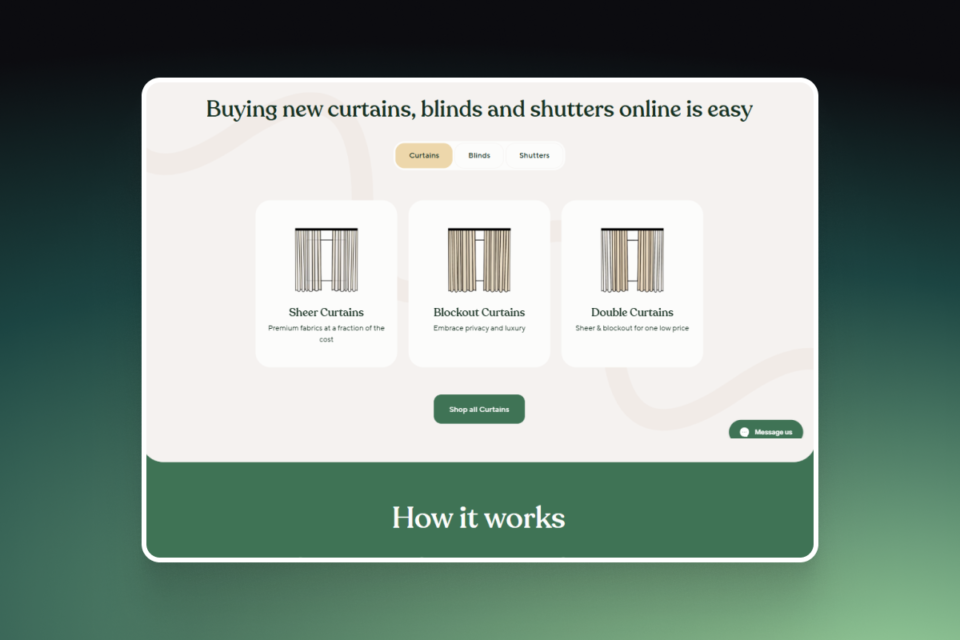Curtain & Blind Co. (C&B Co.) is a family-run, Australian-owned business specialising in DIY window furnishings. Spanning three generations, C&B Co. has grown into a leading provider of premium curtains, blinds, and shutters. Their commitment to fast turnaround times and exceptional customer service has positioned them as a market leader.
As its product range expanded, C&B Co. encountered operational challenges. Their WordPress-based platform struggled to handle the complexity and scale of their catalogue, resulting in inefficiencies, slow updates, and a fragmented customer experience. To support future growth, they needed a robust ecommerce solution to streamline workflows, improve product management, and enhance the online shopping experience.
The Challenge: Managing Growth with an Inefficient System
With over a thousand SKUs, C&B Co’s existing system required individual product management, leading to redundant processes and administrative bottlenecks. Their made-to-measure offerings relied on customisation flows configured at the product level, making updates cumbersome and time-consuming. The absence of a structured hierarchy created inconsistencies across listings, increasing manual effort and impacting the customer journey.
To address these challenges, C&B Co. required:
- A structured, scalable product hierarchy to improve data management.
- A streamlined customisation process to enhance efficiency.
- Seamless integration with Shopify for real-time updates.
- An improved UI/UX for a more intuitive shopping experience.
Our Solution: A Smarter, Scalable Product Architecture
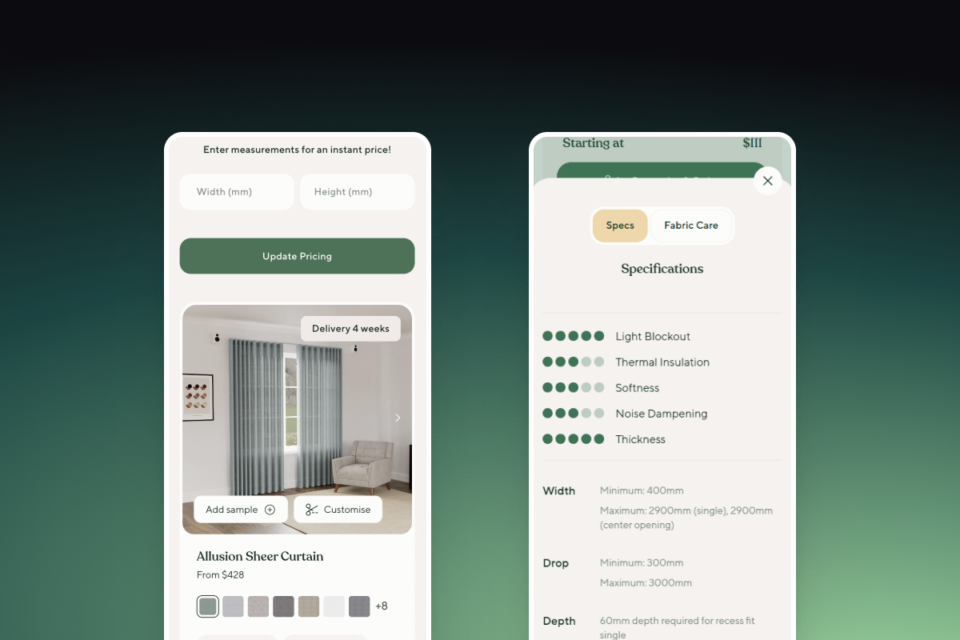
1. Establishing a Structured Product Hierarchy
We restructured C&B Co.’s product catalogue to create a logical, scalable hierarchy: Product Group → Style → Fabric → Colour
- Eliminated duplicate data, reducing manual updates and errors.
- Centralised product relationships for consistency across listings.
- Provided a scalable foundation for future expansion.
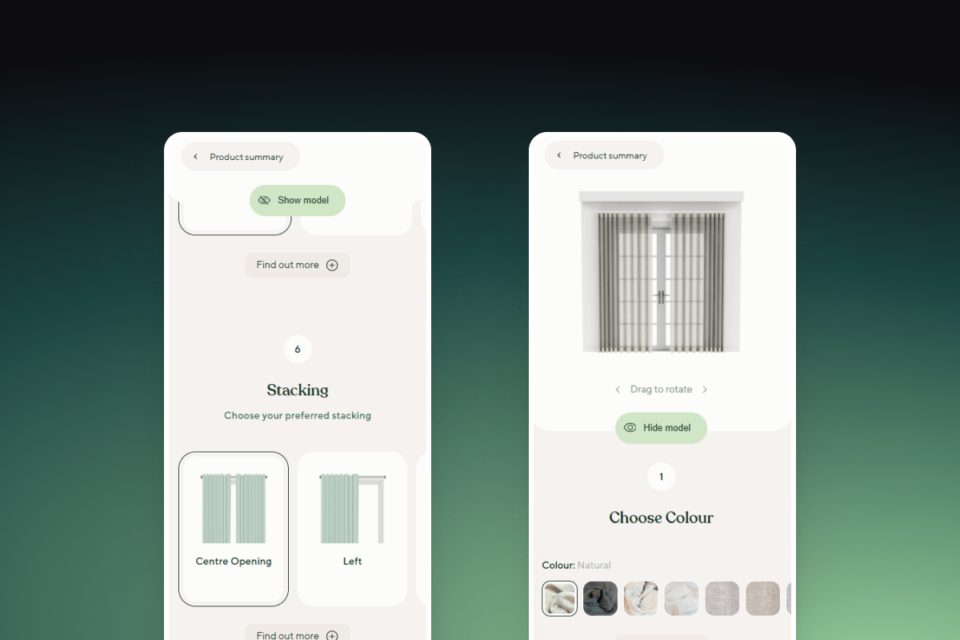
2. Optimising the Customisation Flow
Previously, customisation logic was applied at the individual product level, leading to unnecessary repetition. Our solution:
- Implemented customisation at the Product Group level, reducing duplication.
- Refined logic to dynamically adjust based on user selections.
- Developed an internal tool for effortless customisation management, minimising admin effort.
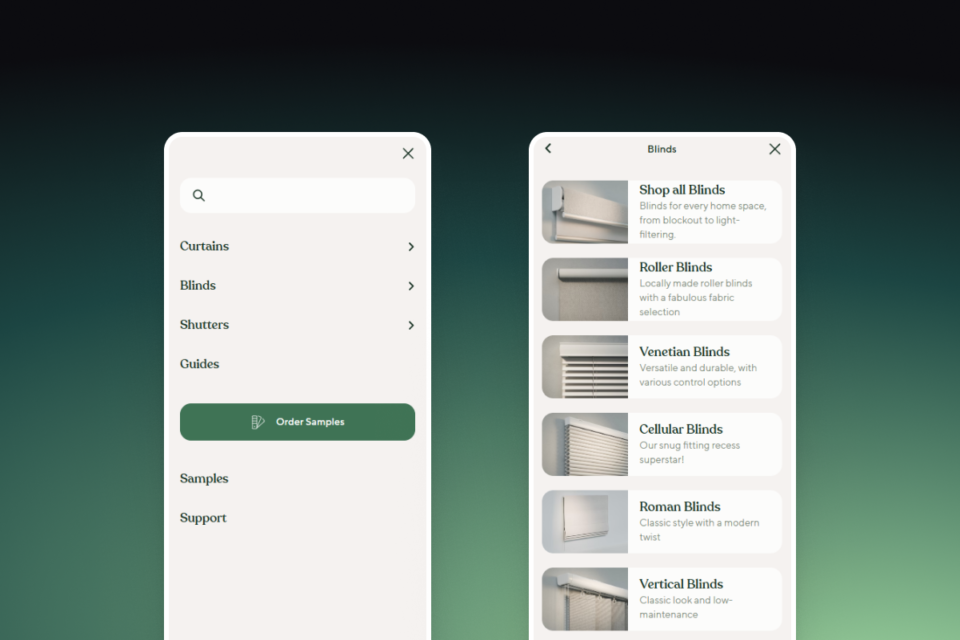
3. Enhancing UX/UI for a Better Customer Experience
A more intuitive storefront was essential to improving user engagement. We:
- Simplified navigation to help customers find and customise products with ease.
- Streamlined the customisation process with a cleaner, more user-friendly interface.
- Refined the shopping experience to create a smoother path to purchase, increasing conversion rates.
4. Seamless Shopify Integration with Retool & Middleware
Shopify’s native product structure required a custom integration to support C&B Co.’s new hierarchy. We:
- Implemented Retool as an interface for managing structured product data efficiently.
- Developed a custom middleware for real-time data synchronisation between Retool and Shopify.
- Ensured accurate and instant updates, reducing administrative workload.
The Results: Increased Efficiency, Scalability, and Customer Satisfaction
By migrating to Shopify with a structured product hierarchy, C&B Co. achieved:
- Faster product updates, eliminating redundancies and simplifying inventory management.
- A dynamic customisation process, making it easier for customers to personalise products.
- Enhanced navigation and UX/UI, improving engagement and boosting conversion rates.
- Seamless internal management, enabling teams to update products with minimal effort.
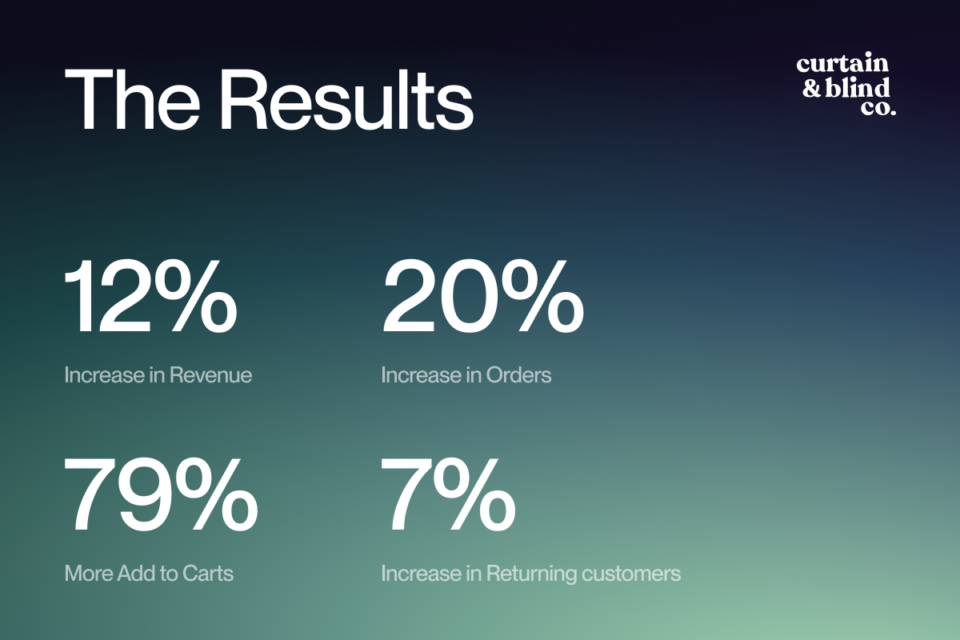
Key Takeaways: Lessons from C&B Co.’s Transformation
This project underscores the importance of structured data management in scaling ecommerce operations. A well-organised product hierarchy enhances both backend efficiency and the customer experience. Investing in UX/UI improvements simplifies the buying journey, while automation through tools like Retool and middleware integrations reduces administrative overhead, allowing businesses to focus on growth.
Want to achieve similar results for your business? Let’s Chat.
